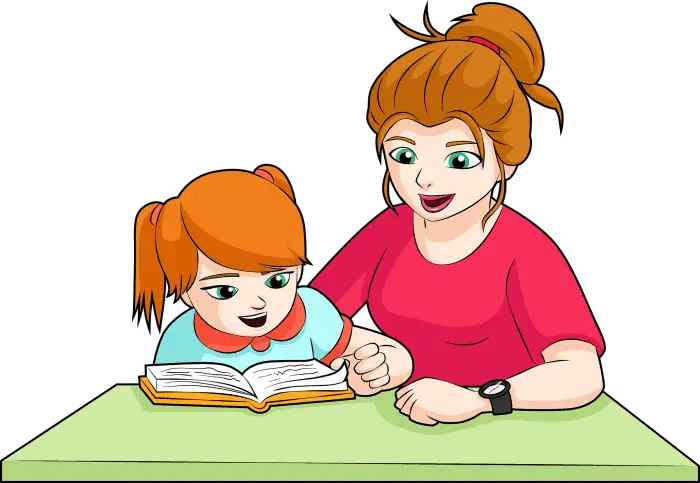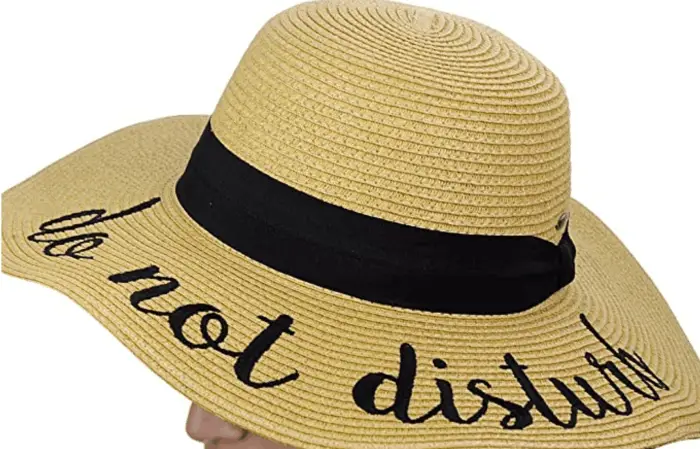
Telling jokes is a common ice-breaker, or activity that attempts to ease awkward or uncomfortable situations. So it’s not uncommon for teachers to use humor in the classroom.
It’s important for teachers to have a sense of humor in the classroom. Teachers who use humor improve student engagement; student retention of learning; and the student-teacher relationship. And teachers with a sense of humor have lower burn-out and stress, and better work place quality.
I’ve taught in public elementary, middle, and high schools for 18 years and didn’t always use humor, especially in my early years as a teacher. However, once I figured out how to incorporate humor into my teaching methods, I saw the value of having a sense of humor clearly. I’m happy to share my experiences with you!
Contents
Sense of Humor Helps Students

Students benefit in a myriad of ways from teachers who use humor in their lessons, or simply have a sense of humor.
Sense of humor: a personality that gives someone the ability to say funny things and see the funny side of things (Source: Merriam-Webster)
A sense of humor did not come naturally for me, I admit. And both my students and I suffered for it in my early days (those were definitely the most difficult of my long teaching career).
But after some lessons of my own, learned from trial and error, I found ways to infuse humor in my methods, improving my students’ experiences too.
Improves Student Engagement

A sense of humor is important as a teacher because it improves student engagement, that is, attention span.
Getting students to pay attention to you when teaching is the number one battle to win. Without success here, learning won’t happen. As simple as this is for teachers to understand, it’s not nearly as simple to accomplish.
A sense of humor in your teaching will command student attention.
Now using humor can mean many different things, and doesn’t have to look the same way from classroom to classroom. In fact, being different can be a bonus.
I once knew a teacher who wore silly hats in class. Some days it would be the Cat in the Hat variety, other times it would be a feather-decked fedora. She also wore fish dresses. She had no problem garnering, and maintaining, her students’ attention any time she talked.
This Do Not Disturb beach hat (linked to Amazon) is just made for humorous teachers!

Another teacher I worked with would construct silly raps and do the crazy-looking ‘Elaine’ dance just to get her students excited about scientific theories!
My personal strategy was to include SpongeBob and Groot in my math word problems and English essays, as well as tell actual Knock-Knock jokes from popsicle sticks at random times. This was easy for me to adopt; it was already a part of my life at home with my kids who loved the comical characters and ate lots of popsicles!
Knock, knock.
Who’s there?
U 8
U 8 who? I didn’t eat anybody, but you ate my PB&J sandwich.
And the doses of humor sprinkled throughout the day grabbed my students’ attention and kept them engaged throughout.
Increases Retention
A sense of humor is also important as a teacher because it increases student retention of learning.
Teachers don’t really need evidence to know that when you maintain your students’ attention during instruction they’re bound to retain learning more than if they aren’t paying attention. This just makes sense (though teacher training programs provide voluminous studies to corroborate).
However, there is also evidence that shows when humor is used, students are able to retain more as well. This isn’t just a result of attention-gathering, but from activity it elicits in the prefrontal areas of the brain (Source: Harvard).
As well, I’ve learned over the years to incorporate silly mnemonics, goofy songs, and comical illustrations to help students remember complex or complicated processes, formulas, and definitions. It’s not so easy for 3rd graders to explain the water cycle, but when they sing and dance it, they have no problem remembering.
Creates a Safe Environment for Learning
Using humor, or having a sense of humor, is important because it helps create an environment where students (young and old) can learn.
If you have a sense of humor, you are able to make fun of yourself when you make a mistake. Teachers aren’t perfect and it’s good for all students to recognize that; then they are more willing to accept that they aren’t expected to be perfect either.
In this kind of setting, where teachers act silly or self-deprecating, it’s okay to take risks-to participate in discussions whether you know you’re right or wrong. Students feel safe and comfortable to take chances. When this happens, real learning can take place.
Builds Student-Teacher Relationship
A sense of humor is important as a teacher because it works to build positive classroom relationships and community culture.
Teachers who act silly, tell jokes, or find the comical in otherwise mundane or boring material show that they are only human. These kinds of teachers are the ones students appreciate and want to get to know better, and in some studies, it’s suggested that teacher humor improves student perceptions of learning (being happier in the classroom).
Students will often reciprocate by telling the teacher something funny that happened to them, or by sharing fun things they like to do.
Humor opens up communication.
As well, when learning is fun, students enjoy the class. Attendance is improved and tardiness is reduced. It also makes students much less likely to act up, or cause disruptions in class.
When most students enjoy the class, there is positive peer pressure to quash “behavior problems” from the few who might still try to instigate it. I learned early on that pressure from students is much more effective in squelching student disruptions than any punishment or discipline a teacher or principal can issue.
Sense of Humor Helps Teachers
Students aren’t the only ones who benefit from teacher humor. Teachers also experience many positive effects from utilizing a sense of humor.
As mentioned earlier, I have had a long career in teaching all grades from elementary to college. But back when I began my teaching career in 1996 teaching 4th grade in a crowded inner-city classroom, I was 23 years old, fresh out of the University of Tennessee’s master’s of education program, a new wife and mom, and already feeling overworked, burned out, and stressed.
I am the first to say I found little humor in my situation.
But eventually, I realized humor would be what saved me, and my students, and would keep me going the next ‘x’ number of years.

Eases Teacher Burn-Out
Using humor, and finding your sense of humor, is important because it eases teacher burnout.
Psychology Today defines burnout as “a state of chronic stress that leads to physical and emotional exhaustion, cynicism, detachment, and feelings of ineffectiveness and lack of accomplishment.”
Teachers are especially vulnerable because they typically work long hours, feel ineffective, and taken for granted. I mean, it’s rare for a teacher to hear ‘thanks’ from their students, after all.
Burnout leads to teacher attrition, too. According to the Economic Policy Institute, schools struggle to retain teachers due to burnout, as a result of the aforementioned reasons. It’s difficult for schools to overcome the outside forces that cause burnout, too. Thus, a sense of humor is even more needed as it is one effective way to ease teaching struggles.
Teachers who put more focus on building relationships and adding fun to their lessons (i.e. characteristics of humor) than those who just work long hours over planning are less likely to succumb to burnout.
Reduces Personal and Professional Stress
In a recent survey by Yale Center for Emotional Intelligence, 5,000 k-12 public school teachers were asked to describe the top emotions they felt daily. Teachers listed “anxious, fearful, worried, overwhelmed and sad” most often. The conclusion is that American teachers are overwhelmed and anxious, regularly.
And as a teacher recently in the classroom, I (and my colleagues) are not surprised.
Teachers are stressed professionally from overcrowded classrooms, high-stakes testing, underpay, long hours, and more. This obviously bleeds over into personal lives. I know that even after a decade of teaching, I brought too much work home!
However, I also realized and shared with my peers that maintaining (or in some instances, gaining) a sense of humor is sometimes the biggest factor to combat stress!. With a sense of humor, you are less likely to let ‘work’ get out of hand and more likely to keep things in propr perspectiv.
And according to the Mayo Clinic, humor is often the best medicine for stress! They go so far as to provide suggestions to learn a sense of humor, if you feel it’s lacking for you.
From the Mayo Clinic:
- “Put humor on your horizon.” They suggest collecting funny items. “Find a few simple items, such as photos, greeting cards or comic strips, that make you chuckle.” For me, I have always enjoyed Onion articles, memes that poke fun at education, and silly animal comics. I would often print out goofy animal comic strips and tape them to the whiteboard.
- “Laugh and the world laughs with you.” They suggest “even if it feels forced at first, practice laughing. It does your body good.” I think of this as watching or attending comedy shows. When you’re watching a show with some friends, you’re bound to start laughing. Sometimes even when it’s not really funny, your silly friend will be the source of humor for you.
- “Share a laugh.” My teacher friends and I got into the habit of forwarding silly videos, memes, or viral bloopers to our group thread.
- “Knock, knock.” I already mentioned buying popsicles that included jokes on the sticks for my kids. I’d save these and bring them to school for my students.
- “Know what isn’t funny.” Sarcasm is often funny, especially for older students, but if used too much or at in appropriate times, it can be detrimental to relationships. Make sure your sense of humor is harmless.
Suffice it to say, a sense of humor creates smiles, and I’ve never seen a stressed person smiling!
Improves Quality of Work Place

When I first started teaching, I explained that it was my most challenging years. I was quite stressed and had a difficult time balancing the demands.
Finally, after engaging a more humorous approach to teaching, thereby creating a better, easier managed classroom, my work became a much nicer place to be. A sense of humor really improved my work place quality without adding any other real change!
My students were happier and enjoyed coming to class. They were far less disruptive and our classroom, whether it was an elementary classroom or a class of 9th grader, was fun and cooperative.
Of course, when your classroom is better, your overall work place feels better too. You have a smile on your face walking down the hall, which in turn puts you in a better mood when conversing with colleagues, parents, or administrators.
Punchline for Importance of Having A Sense Of Humor As A Teacher
So what’s the final verdict (or punchline) regarding having a sense of humor as a teacher?
It improves student and teacher experience. For students, humor allows them to pay more attention, retain what they’ve learned, and feel more comfortable in the classroom.
For teachers, having a sense of humor reduces stress and decreases burnout. It enhances your quality of work place substantially without costing a dime!
For these reasons, and I’m sure much more time permitting, having a sense of humor as a teacher is important! Heck, I’d go so far as saying, imperative!
